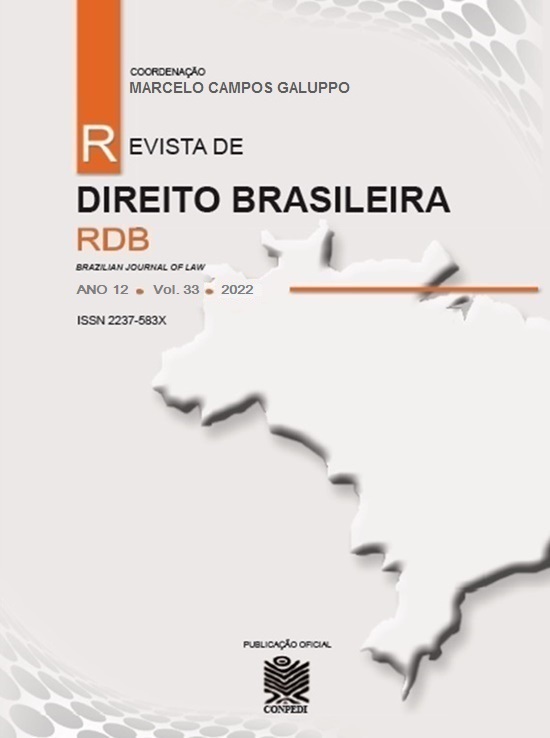DUE DILIGENCE AND DECENT WORK. SPECIAL REFERENCE TO LABOUR LEGISLATION IN VALUE CHAINS
Conteúdo do artigo principal
Resumo
In recent decades, the agricultural world has changed, in this new context, international food companies are organized around a global production network. One of the main factors for the introduction of a more decentralized and flexible food and agricultural system was the wage gap between actors from the Global North and the Global South. This study analyzes the effectiveness of the action of control mechanisms in relation to the protection of workers' rights in multinational companies in Spain with special reference to the value chain of the agricultural sector. In particular, the working conditions of workers in food companies will be analyzed, analyzing the inequalities between the different groups of workers, paying special attention to immigrants and women, thus analyzing possible differences, contractual irregularities and salary gaps. Therefore, the article invites us to reflect on the need to implement new control mechanisms and regulatory instruments that intervene to correct the distortions in the agricultural labor market and the imbalances in the working conditions of these groups with the aim of contributing to a transformation of agricultural work through social strategies.
Downloads
Detalhes do artigo
• O(s) autor(es) garante(m) que a contribuição é original e inédita e que não está em processo de avaliação em outra(s) revista(s);
• A revista não se responsabiliza pelas opiniões, ideias e conceitos emitidos nos textos, por serem de inteira responsabilidade de seu(s) autor(es);
• É reservado aos editores o direito de proceder ajustes textuais e de adequação do artigo às normas da publicação.
Autores mantêm os direitos autorais e concedem à revista o direito de primeira publicação, com o trabalho simultaneamente licenciado sob a Licença Creative Commons Attribution que permite o compartilhamento do trabalho com reconhecimento da autoria e publicação inicial nesta revista.
Autores têm autorização para assumir contratos adicionais separadamente, para distribuição não exclusiva da versão do trabalho publicada nesta revista (ex.: publicar em repositório institucional ou como capítulo de livro), com reconhecimento de autoria e publicação inicial nesta revista.
Autores têm permissão e são estimulados a publicar e distribuir seu trabalho online (ex.: em repositórios institucionais ou na sua página pessoal) a qualquer ponto antes ou durante o processo editorial, já que isso pode gerar alterações produtivas, bem como aumentar o impacto e a citação do trabalho publicado (Veja O Efeito do Acesso Livre) emhttp://opcit.eprints.org/oacitation-biblio.html
Referências
Anker, R. e. a., 2003. La medición del trabajo decente con indicadores es-tadísticos. Revista Internacional del Trabajo, pp. 168-169. DOI: https://doi.org/10.1111/j.1564-913X.2003.tb00172.x
Bales, k. e. a., 2018. Slavery from Space: Demonstrating the role for satellite remote sensing to inform evidence-based action related to UN SDG number 8. ISPRS Journal of Photogrammetry and Remote Sensing, p. volume 142 páginas 380 y ss.. DOI: https://doi.org/10.1016/j.isprsjprs.2018.02.012
Castellanos Ortega, M., 2009. Mujer, inmigrante y temporera: ¿triple dis-criminación?. Revista Internacional de Ciencias Sociales n. 28, pp. 21-28.
Davies, J. y. O. N., 2019. Labour exploitation as corporate crime and harm: outsourcing responsibility in food production and cleaning ser-vices supply chains. Crime, Law and Social Change Journal, Springer, pp. 87-119. DOI: https://doi.org/10.1007/s10611-019-09841-w
DOMÍNGUEZ, M. M. y., 2006. El lado oculto del empleo. La desigualdad de género y el modelo de trabajo.. In: Estudios sobre género y economía. Madrid: Akal. Colección Economía Actual, p. 166 y ss..
JOHNS, A. S. Y. J., 2020. Historicizing Modern Slavery: Free-Grown Sugar as an Ethics-Driven Market Category in Nineteenth-Century Britain. Journal of Business Ethics N. 166, pp. 271-292. DOI: https://doi.org/10.1007/s10551-019-04318-1
Mieres, F., 2017. Addressing the demand side in and through supply chains: Mapping the field of initiatives around human trafficking, forced labour and slavery.. DemandAT Working, p. Paper No. 8.
MONTOTO, V., 2020. La visibilización de las mujeres en las políticas agroalimentarias a través del proceso de conceptualización de la soberanía alimentaria. In: Tierra, Derechos Hu-manos y desarrollo: supuestos y visiones desde África y América.. s.l.:Estudios sobre Desarrollo de la Universidad del País Vasco, p. 296 y ss..
ONU, N., 2020. La situación de los trabajadores migrantes estacionales en España pone sus vidas en peligro. Noticias ONU. Mirada global Historias humanas, 24 julio.
SANGUINETI RAYMOND, W., 2020. Las cadenas mundiales de produc-ción y la construcción de un derechos sin fronteras. In: Derecho laboral iberoamericano influencias del sistema normativo de la OIT Colombia, 2020. Bogotá: Tirant lo blanch, pp. 133-166.





